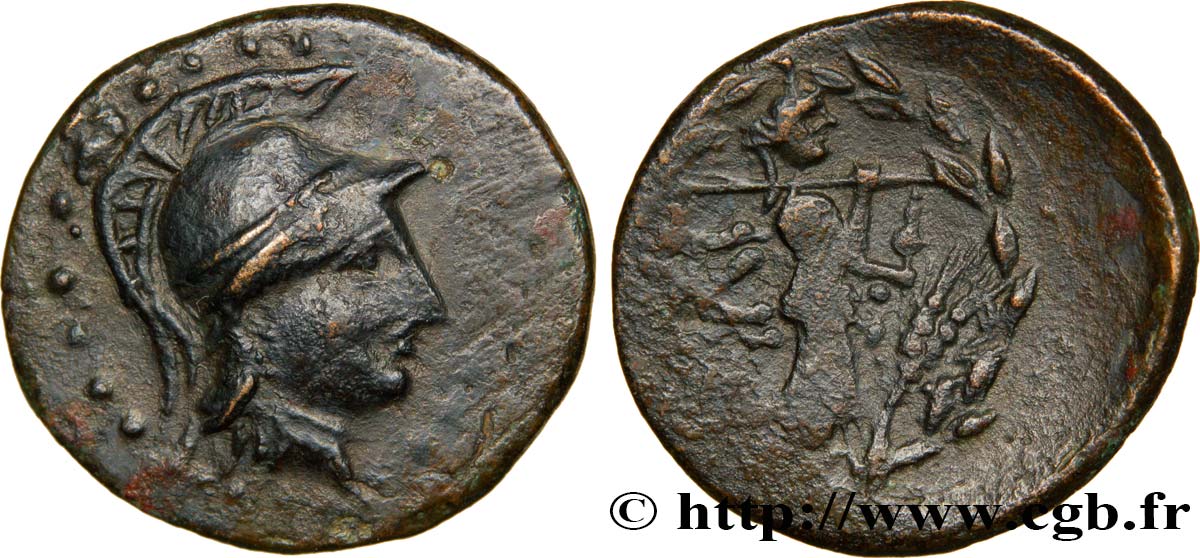E-auction 83-41877 - bgr_333146 - TROAS - ILION Unité
You must signin and be an approved bidder to bid, LOGIN TO BID. Accounts are subject to approval and the approval process takes place within 48 hours. Do not wait until the day a sale closes to register. Clicking on « bid » constitutes acceptance of the terms of use of cgb.fr private e-auctions.
Bids must be placed in whole Euro amounts only. The sale will start closing at the time stated on the item description; any bids received at the site after the closing time will not be executed. Transmission times may vary and bids could be rejected if you wait until the last second. For further information ckeck the E-auctions F.A.Q.
NO BUYER'S FEE.
NO BUYER'S FEE.
| Estimate : | 150 € |
| Price : | 67 € |
| Maximum bid : | 75 € |
| End of the sale : | 17 November 2014 15:04:00 |
| bidders : | 11 bidders |
Type : Unité
Date: c. 180-170 AC.
Mint name / Town : Ilion (Troie), Troade
Metal : copper
Diameter : 17 mm
Orientation dies : 11 h.
Weight : 3,27 g.
Rarity : R2
Coments on the condition:
Exemplaire sur un petit flan ovale bien centré des deux côtés de style rude et cru. Tête d’Athéna stylisée. Revers de frappe un peu molle. Patine marron foncé
Obverse
Obverse description : Tête d’Athéna Ilias casquée et laurée à droite, coiffée du casque attique à triple aigrette ; grènetis circulaure.
Reverse
Reverse description : Athéna Ilias marchant à droite, coiffée du polos et vêtue du chiton, tenant une longue javeline ornée d’une bandelette de la main droite et une quenouille de la main gauche ; à ses pieds à gauche, un épi de blé ; le tout dans une couronne d’olivier.
Reverse legend : ILI.
Reverse translation : (Ilion).
Commentary
Ce monnayage accompagnant les monnaies d’argent stéphanophorique semble beaucoup plus rare que ne le laissent supposer les ouvrages généraux.








 Report a mistake
Report a mistake Print the page
Print the page Share my selection
Share my selection Ask a question
Ask a question Consign / sell
Consign / sell